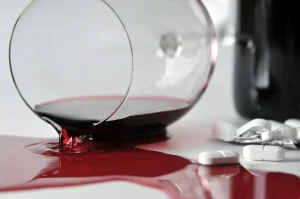If you experience kidney pain after drinking alcohol, it’s essential that you pay attention to your body and what it’s telling you. You may need to take a complete break from alcohol for a set amount of time or reduce the amount of alcohol you consume. To treat liver disease, you may be advised to stop drinking alcohol, lose weight, and follow a nutritional diet. A liver transplant may be necessary in cases of liver failure.
- Your kidneys are vital to keeping your body healthy and free of toxins.
- This can be problematic for patients who need to monitor their fluid intake closely.
- Hypomagnesemia responds readily to magnesium supplementation treatment, however.
- Alcohol consumption apparently leads to excessive phosphate levels by altering muscle cell integrity and causing the muscle cells to release phosphate.
- Once you begin having symptoms, the first sign something is wrong may involve swelling in your hands and feet, itchy skin or needing to pee more often.
Juices high in potassium
Alcoholic patients also may develop low blood levels of phosphate by excreting too much of this ion into their urine. Typically, chronic alcoholic patients are losing up to 1.5 g/d of phosphate through their urine when they have reached the point of being sick enough to accept hospitalization. Binge alcohol and kidneys drinking (usually more than four to five drinks within two hours) can raise a person’s blood alcohol to dangerous levels. This can cause a sudden drop in kidney function known as “acute kidney injury.” When this happens, dialysis is needed until a person’s kidney function returns to normal.
- The cells in your organs, including your kidneys, can’t function properly.
- About 15% of adults in the United States have chronic kidney disease.
- Besides producing hormones, the kidneys respond to the actions of regulatory hormones produced in the brain, the parathyroid glands in the neck, and the adrenal glands located atop the kidneys.
Risk factors for alcohol use disorder
This transfer of phosphate out of muscle cells and into the bloodstream results in an increased amount of phosphate passing through the kidneys’ filtering system. In response, reabsorption of phosphate diminishes and excretion in urine increases in an effort to return blood levels of this ion to normal. Low blood levels of phosphate commonly occur acutely in hospitalized alcoholic patients, appearing in more than one-half of severe alcoholism cases. Although some exceptions exist, several historical studies have reported similar modest reductions in sodium and potassium excretion following alcohol use.

Drinking alcohol with kidney disease
Diabetes has proven to be a severe condition which affects many people worldwide. It is a condition which affects the blood sugar, by either spiking it or decreasing it.Can alcohol cause type 2 diabetes? Type 2 diabetes can be as a result of the effects of alcohol on the body, especially when consumed excessively.

After drinking, you may feel soreness around your kidneys. You will feel this soreness on both sides of your spine under the ribcage. Some people may feel it on one side, while others feel it on both. Especially when there are many other factors to focus on when it comes to keeping your kidneys healthy and happy before looking to add in alcohol.
- Alcohol consumption can significantly impact the efficacy and safety of the dialysis process.
- Remember that alcohol on an empty stomach can cause blood sugar levels to drop.
- For example, a person with a UTI that spreads to the kidneys can develop sepsis, a dangerous infection of the blood.
- Alcohol can perturb these controls, however, to a degree that varies with the amount of alcohol consumed and the particular mechanism’s sensitivity.
How Does Alcohol Affect Your Kidneys?
- This is an exciting time for patients and for physicians that are keen to develop, prescribe such therapies.
- When you drink heavily, your kidneys have to work harder to filter out the alcohol.
- A standard drink is roughly equivalent to 1.5 ounces of distilled spirits, 5 ounces of wine, or 12 ounces of beer.
- Chronic alcohol abuse places an immense burden on the liver, leading to liver failure in patients with cirrhosis and a subsequent decline in kidney function.
- Alcohol can also interfere with medications and impact their effectiveness.
Long-term mental effects

Risks of Alcohol Abuse with Kidney Disease


Recent Comments